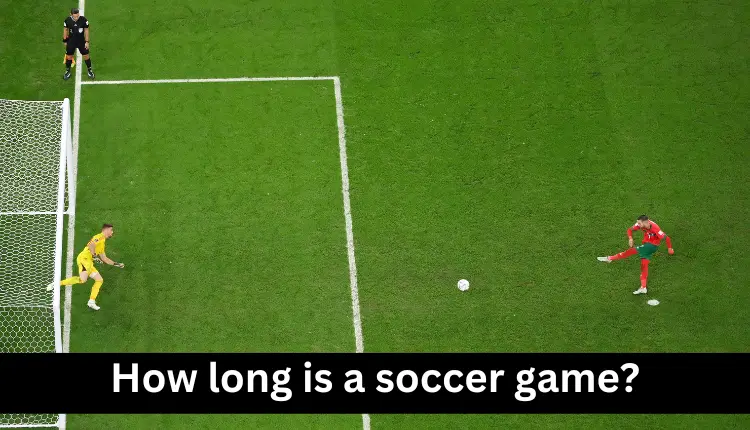How long is a Soccer Game? Rules, Extra Time, and Penalties are all Discussed.
The 2022 World Cup, and particularly the exploits of the USMNT, drew a large number of new American fans to a sport that is well down the pecking order in the United States.
This summer, the USWNT — a team accustomed to a little more success in soccer — will be chasing a remarkable third consecutive World Cup victory in Australia and New Zealand.
Fans of traditional American sports are more accustomed to watching games divided into four quarters rather than two halves, therefore here is a complete explanation of the length of a football, or soccer, match.
What is the duration of a soccer match?
Games are usually 90 minutes long, divided into two 45-minute halves.
However, unlike in other sports, the game does not terminate abruptly when the clock reaches 45 or 90 minutes.
The clock will continue to tick even after the ball has left the field. This results in stoppage time, or extra time, which generated quite a stir at the 2022 World Cup and has been similarly substantial at the 2023 edition.
How long is the stopping time?
Stoppage time is added at the end of each half to account for all pauses in play, but it still does not accurately reflect the amount of time spent when the ball is not on the field.
Prior to the 2022 World Cup, football fans were used to a minute or two being added on at the conclusion of the first half and three or four minutes being added on at the end of the second half.
However, the quantity of stoppage time at the 2022 World Cup was drastically different. Pierluigi Collina, chairman of FIFA’s referees committee, stated on the eve of the event that they hope to “offer more show” by including longer stoppage time than usual.
“Imagine if there are two or three goals scored in a half, it’s easy to lose three, four or five minutes just to goal celebrations,” the former referee remarked. “At the end, this time must be considered and compensated, as well as the time lost due to VAR intervention.”
“During matches in Russia (at the 2014 World Cup), having the fourth official show the electronic board with seven, eight, or nine minutes on it became quite normal.” The goal is to provide greater entertainment to people watching the World Cup.”
This was reaffirmed to officials before of the 2023 World Cup, and the amount of added time during the group stage has been substantially more than usual, with five minutes or more becoming the norm at the ends of both halves.
Are the World Cup knockout games still 90 minutes long?
Not always.
The majority of games during the knockout stage will be 90 minutes duration, as is customary. However, there is the possibility of extra time.
At the conclusion of knockout games that conclude in a draw, a 30-minute period, divided into 15-minute halves, will be added.
Unlike in the group stage, where draws were permitted, each knockout match must have a winner, therefore if the score is tied after regulation time, extra time will be played.
There is every chance that there will still be no winner after the additional 30-minute period, which brings us to the final method of producing a result: penalties!
What is the procedure for a penalty shootout?
If after 120 minutes there is a tie, both teams have to be ready for a penalty shootout.
This is how it works:
Depending on a coin flip, one team will get a first penalty.
Each side is given five penalties, and each penalty must be taken by a different player.
When all ten penalties have been taken and one side has more goals than the other, or when one team builds an unassailable advantage, that team will be declared the winner.
In a sudden death format, the shootout continues if both sides have the same number of goals.
Once all players from both teams—including the goalkeeper—have taken a penalty, the takers repeat the process in the same or a different sequence until a winner is established.


Comments are closed.